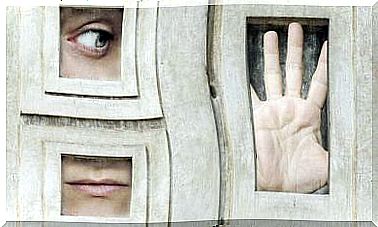Psychological Benefits Of Christmas Traditions

Christmas tends to evoke tranquility, peace and rest. It is a time of year full of traditions that are repeated every year. When, due to various circumstances, we miss traditional meals or cannot participate in the distribution of gifts, Christmas is not the same. These festivals seem to lose much of their meaning when we alter traditions.
Christmas is a sensory gift. The street lights, the colors of the wrapping paper, the flavors of the food and the smells of the drinks. It is a mixture of sensations that we do not experience at any other time of the year. But, above all, Christmas is a time to be with the family, to meet with loved ones and get out of the routine.
An escape from anxiety
Daily fronts are stressful, the day to day consumes us and we accumulate a fatigue that can end up becoming chronic. On the other hand, we find ourselves with uncertainty, that which is often the best food for catastrophic thoughts.
For all this, many people need a time like Christmas. A special date every year in which to be able to travel to childhood, claim the right to feel sad for those who are no longer or enjoy those who are far away for a good part of the year. A time to open packages, but especially the arms.

Holiday traditions, from reciting blessings to raising a glass to make a toast, are based on ritual. Laboratory experiments and field studies show that the structured and repetitive actions involved in these rituals can act as a buffer against anxiety by turning our world into a more predictable place.
Of course, many of these rituals can also be performed at other times of the year, but during Christmas they take on more meaning. They are celebrated in a special place (the family home) and with a special group of people (our closest relatives and friends).
This is why more people travel during the end of the year holidays than in any other season. Meetings of people from far away help to leave worries behind and reconnect with old family traditions.
Traditional meals
No Christmas tradition is complete without a festive meal. The long hours spent between stoves in order to make the food delicious are compensated by the hours spent tasting food or socializing after dinner. Also, of course, special occasions call for special meals. These recipes usually include secret ingredients, but not only culinary, but also psychological.
And it is that sharing food is a symbol of community, it gathers the whole family around the table and paves the way for conversation and connection. Various studies show that performing a ritual before a meal improves the eating experience and makes food appear tastier.
Other studies have found that when children participate in preparing food, they enjoy it more, and that the longer it takes to prepare a dish, the more we appreciate it later. So the effort and show off associated with banquets can be said to enhance the dining experience.
Traditional gifts
One of the Christmas traditions is the exchange of gifts. Interpreted from a rational point of view, the exchange of gifts is meaningless. When exchanging gifts, money is recycled: in some way, if we think about the gifts we give and the ones we do the accounts with, they usually come out.
From this point of view, buying your gift yourself would be more efficient. However, giving is an act that goes further: gifts maintain social ties by forcing us, even if only for a few minutes or hours, to think about the other.
Although money is recycled, the satisfaction of giving and receiving gifts allows those involved in the gift exchange to enjoy themselves. Also, the most money spent on Christmas is usually invested in pre-planned gifts. Many people prefer to wait for Christmas to indulge themselves.

Family and Christmas traditions
Without a doubt, the most important function of Christmas is the maintenance and reinforcement of family ties. In fact, for relatives who live far away, holiday rituals can be the glue that holds the family together. Children, by participating in Christmas traditions, develop stronger bonds with their families. In addition, having better memories of family rituals is associated with more positive interactions with children.
In short, rituals and customs are indicators of identity and belonging to the group. Therefore, this time that is full of Christmas traditions, generates feelings of belonging and encourages generosity. Maybe it’s just an excuse, but if it’s for everything that comes from it, isn’t it worth it?









